No where to turn, no one to trust: The impact of the Venezuelan crisis on its people
False promises are seeing girls and women killed as they seek refuge. Nicholas Casey finds out about the inner workings of Venezuelan migrants desperate to leave their country
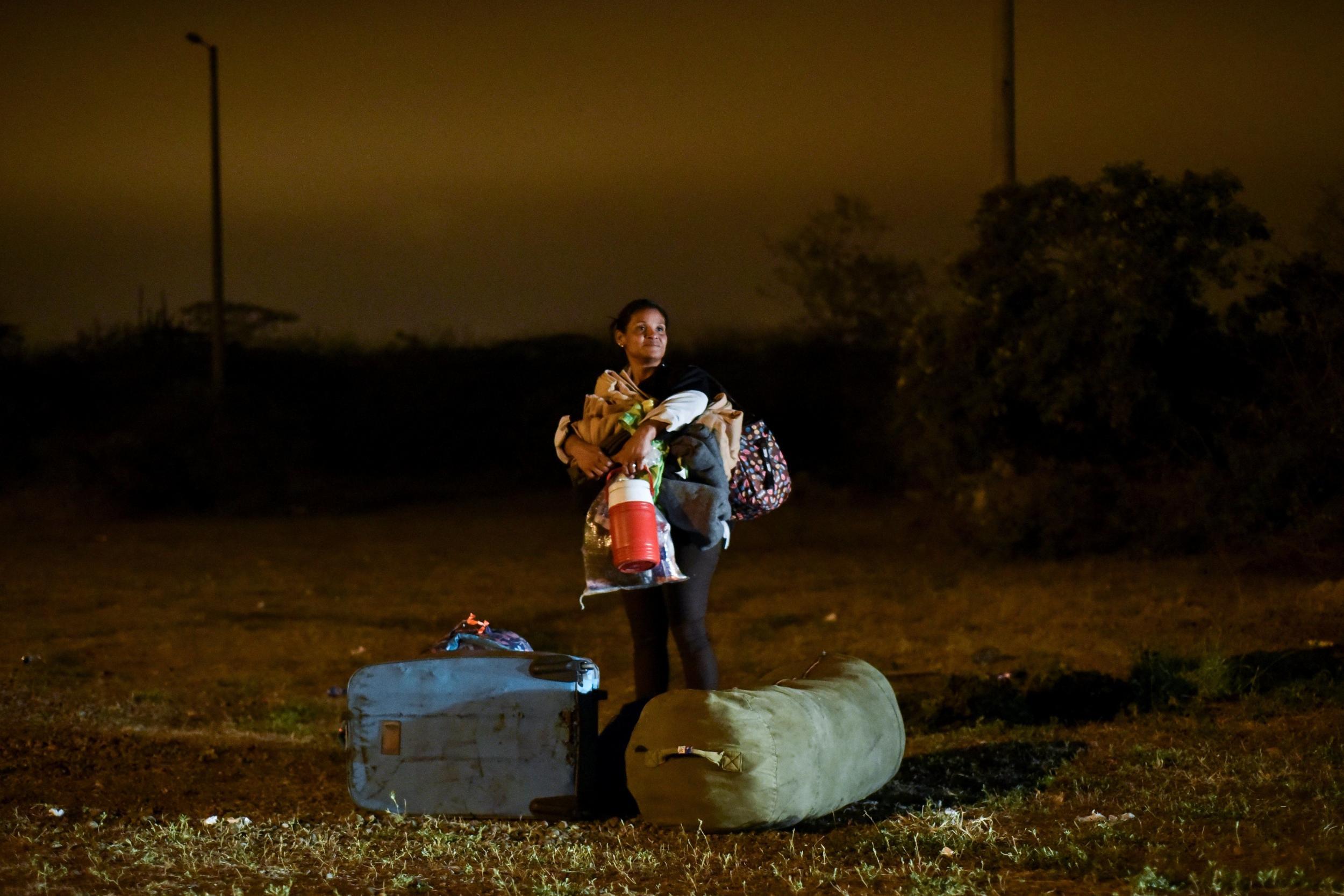
She slipped out of the house around dusk, without telling her mother. Sixteen and hungry, she followed the men who had promised her work and food. Instead, they smuggled her out of Venezuela by sea, secretly planning to force her into a Trinidad brothel.
Put in a fishing boat, the girl, Yoskeili Zurita, says she sped away with dozens of other women, including her cousin. But the overloaded skiff took on water fast and capsized with the roll of a sudden swell.
Screams pealed across the water. Women cried out the names of children they had left behind. In the darkness, someone prayed.
“My cousin didn’t know how to swim. She looked at me and said, ‘I can’t do this,’” says Yoskeili, who spent two days clinging to the overturned hull in the strait between Trinidad and Venezuela before fishermen found her. She never saw her cousin again.
The boat sank with 38 passengers in late April, most of them women. Only nine people survived, among them Yoskeili and other women whom authorities now say were victims of a human smuggling ring. The tragedy was shocking, even in Venezuela, a nation accustomed to the ravages of a collapsing state, hunger, hyperinflation and rampant crime. For millions, survival means leaving, whatever the risk may be.
In the last four years alone, about 4 million people have abandoned the country, the United Nations estimates. They leave on foot, crossing a treacherous pass in the Andes mountains. They sell their hair in plazas in border towns, huddle in refugee tents in Brazil and Colombia. And they head off in leaky boats short on gas or spare parts, and sometimes get lost at sea.
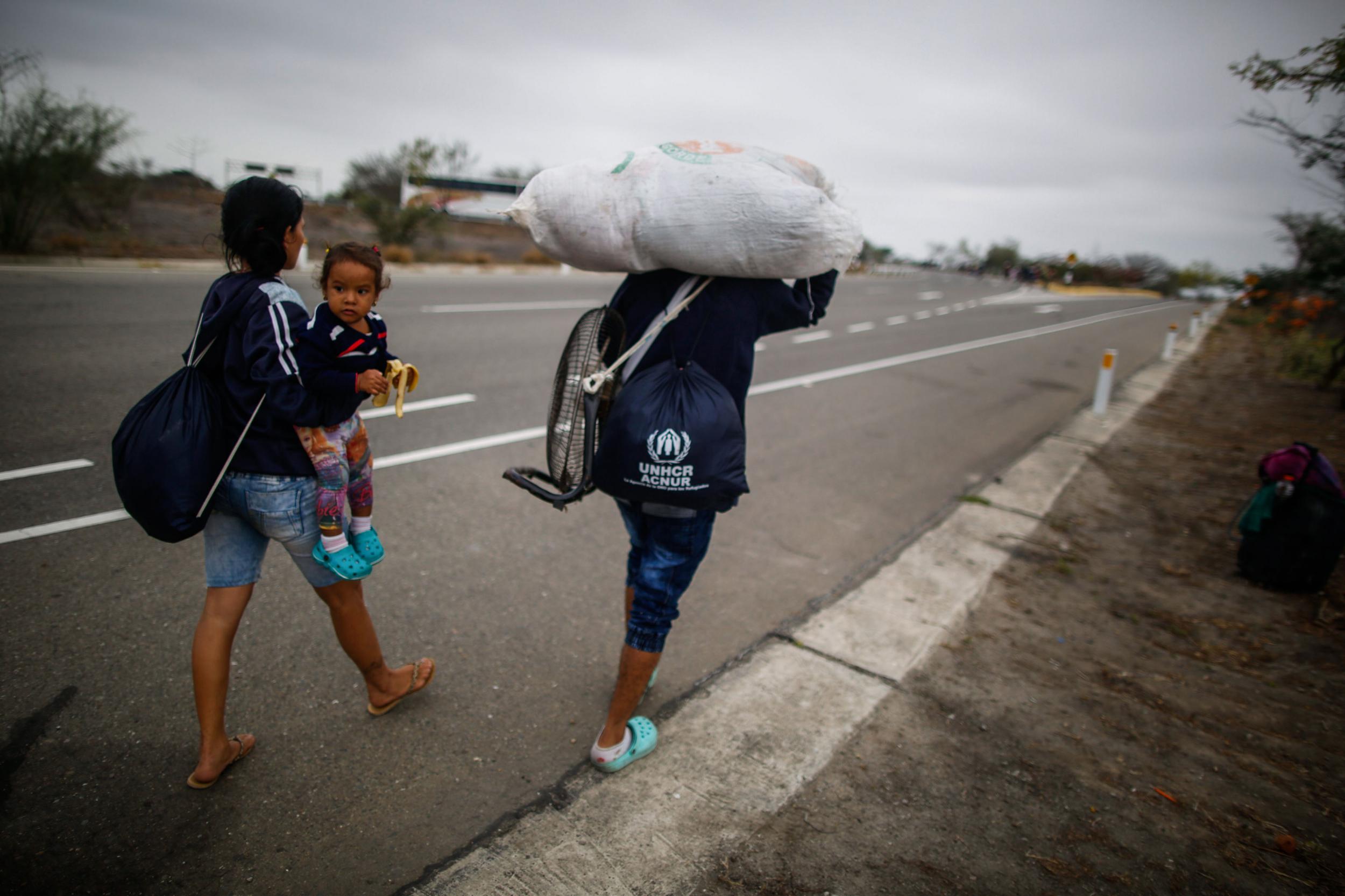
As the women in Yoskeili’s boat fought to survive, their state was nowhere to be found. The government, crippled by corruption, mismanagement and US sanctions on its oil industry, told relatives the day after the wreck that it lacked even the fuel to mount a rescue. A state helicopter arrived four days late to join a search that had been left mainly to local fishermen. And Venezuela’s national guard possibly played a hand in the deaths: Venezuelan prosecutors have charged two soldiers for being part of a criminal group that tried to smuggle the women to Trinidad.
Then in May, while the country was still coming to terms with the disaster, the tragedy repeated itself: another smuggling boat sank into the waves with 33 passengers aboard, including at least three minors. Only the captain survived, disappearing before police could question him.
“How can this be allowed to happen again?” says Salvador Diaz, whose daughter had been on the boat with Yoskeili, hoping to reach Trinidad, when it sank.
I would leave the food for my wife and daughter, and I would go to sleep with none. This is what is happening in Venezuela, the parents stop eating to give food to our children, our grandchildren
Yoskeili now passes days alone in her room, at times wondering why she survived when so many other women drowned at sea. One of them, Carmen Lares, a single mother, first lost her job this year, then lost her three-month-old baby to malnutrition at the start of April as food ran short. Now she is gone as well. Yoskeili replays the night over and over in her mind, remembering the crash of the waves against the hull, the women who could not swim and took off their clothes in the frantic hope that it would help them stay afloat, and the promises of the men taking her to Trinidad.
“They said when we got there, there would be plenty to eat,” she says.
‘Kidnapped’ on a doomed vessel
Diaz was slowly watching his family disappear. First his younger son, a petroleum engineer, left for Brazil, crossing treacherous borderlands controlled by criminal groups. Suddenly his 22-year-old daughter, Oriana Diaz, was talking about smuggling herself into Trinidad. He never imagined anything like this. Until recently, he had enjoyed a middle-class life as a public high school teacher. His other son was an accountant. The family used to vacation around the Caribbean, not flee there.
But food was in short supply. Domestic production had collapsed and the few imported foods on the shelves had become unobtainable ever since hyperinflation had destroyed his salary. His daughter was a single mother with two children to feed, aged five months and two.
“I would leave the food for my wife and daughter, and I would go to sleep with none,” Diaz recalls. “This is what is happening in Venezuela, the parents stop eating to give food to our children, our grandchildren.”
So when Oriana said she would head to Trinidad to send money back to the family, her father felt he could not object.
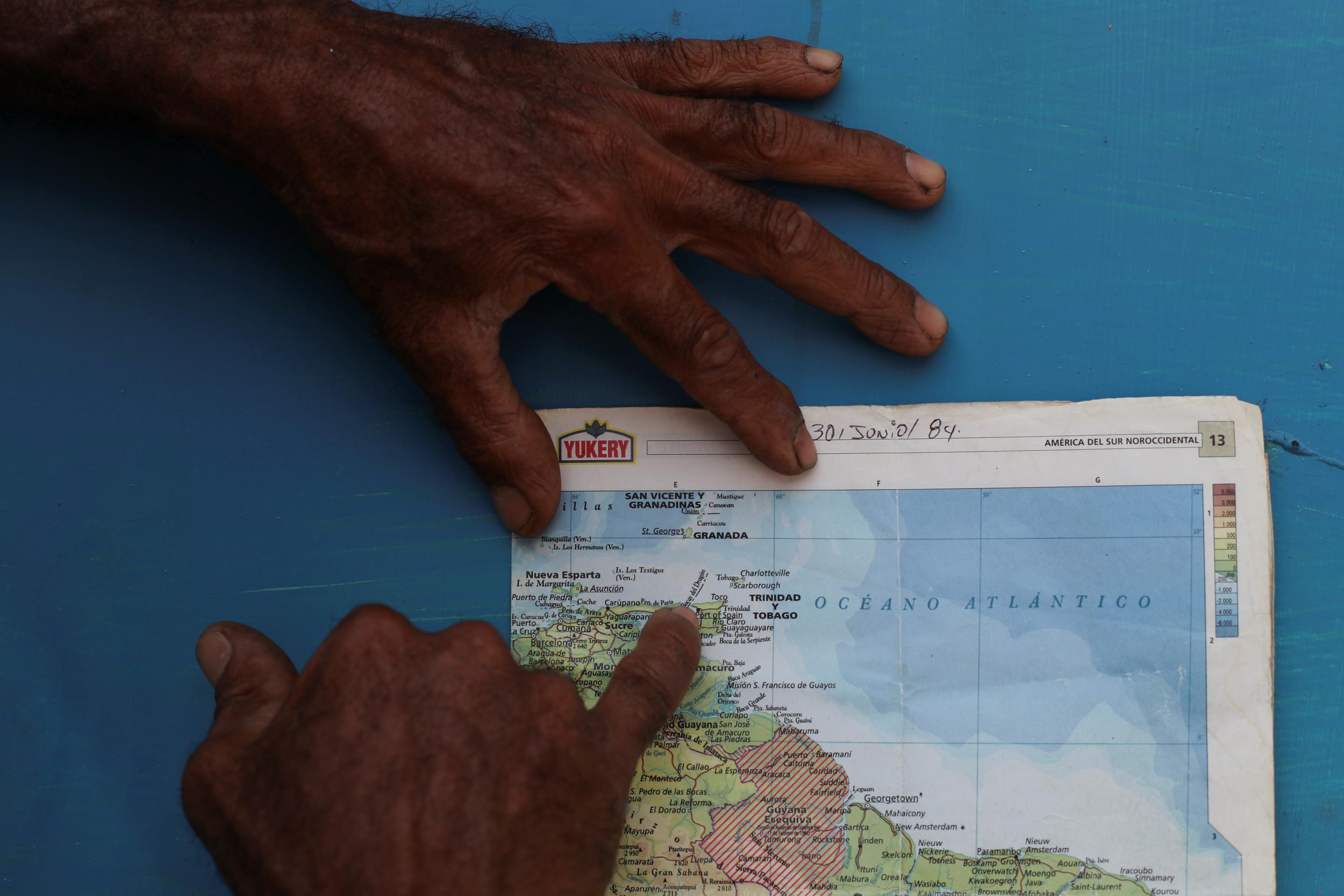
“I took her two-year-old to the football field that was beside our house so he wouldn’t see his mother leave the house,” Diaz says.
Yoskeili says she was approached by a smuggler named Nano while she sat on her porch with two of her cousins. He gave her very little time to decide. The boat was leaving the next night and Nano — later identified by Venezuelan prosecutors as Dayson Alexander Alleyne, a 28-year-old now under arrest for human trafficking – promised plenty of food at the end of the journey. Yoskeili did not tell her mother, fearing she might stop her, and confided only in her ageing grandmother that she planned to go.
At 7pm, Nano arrived in a car, shoving Yoskeili inside and speeding off to a hotel where she was put into a room with other girls, she says.
“We’d been kidnapped,” she says. “They didn’t want anyone to see us.”
Evening fell on the Venezuelan fishing town of Guiria, where at the end of a pier a boatman prepared the skiff for the trip. Yoskeili’s fear became much more intense when she asked the other women what kind of work they would do on the island.
“All the girls on the boat said we were going to be prostitutes,” she says.
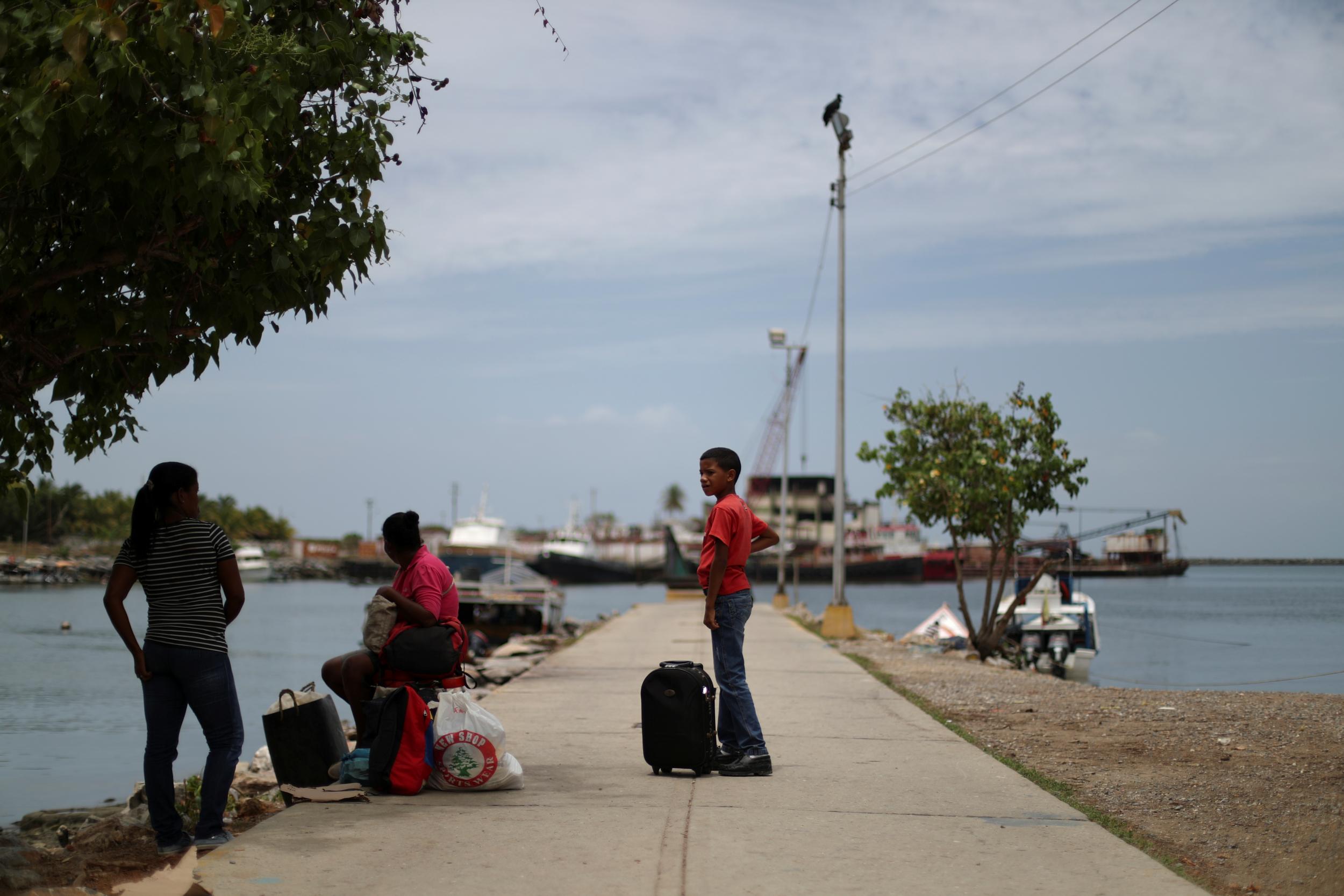
Others were just as surprised. Yubreilis Merchan, a hair stylist, believed she was being taken to see her mother in Trinidad. But women and girls kept being loaded aboard.
“We were so many. We were saying, ‘There’s water coming in the boat,’ and the boatman just said this was normal,” she recalls, adding that the women at first tried to bail out the boat as they were crowded on.
Packed with 38 people, heavy motors, suitcases and contraband merchandise, the boat — named the Jhonnailys Jose – finally took off around sunset on 23 April. The night was clear in Venezuela. A quarter moon was set to rise after 10.30pm, which would help the boatman see along the roughly 45-mile route. But the waves were getting rough. Some smashed into the hull, and the boat came down with a thud down over large swells. Then the motor went dead.
A smuggler barked orders while some of the women who could not swim crawled on top of the ones who could, in a frenzied attempt to breathe
Without power, the Jhonnailys Jose was tossed, turning perpendicular against the waves. One overtook the boat, crashing inside. The boatman fumbled with a back-up motor and the boat lurched.
“We started to scream, ‘We are going to sink!’” recalls Merchan.
Terrified, the passengers forced him to turn back for Venezuela with the back-up motor as the boat continued to take on water. The women threw suitcases into the sea and bailed out water with their shoes. It was too late. Water had engulfed the boat. It sank into the waves before flipping over.
“I thought of my daughters: I have three girls, one that’s five, another three, another who turned seven months old the day that I left,” Merchan says. “We were in a state of total desperation.”
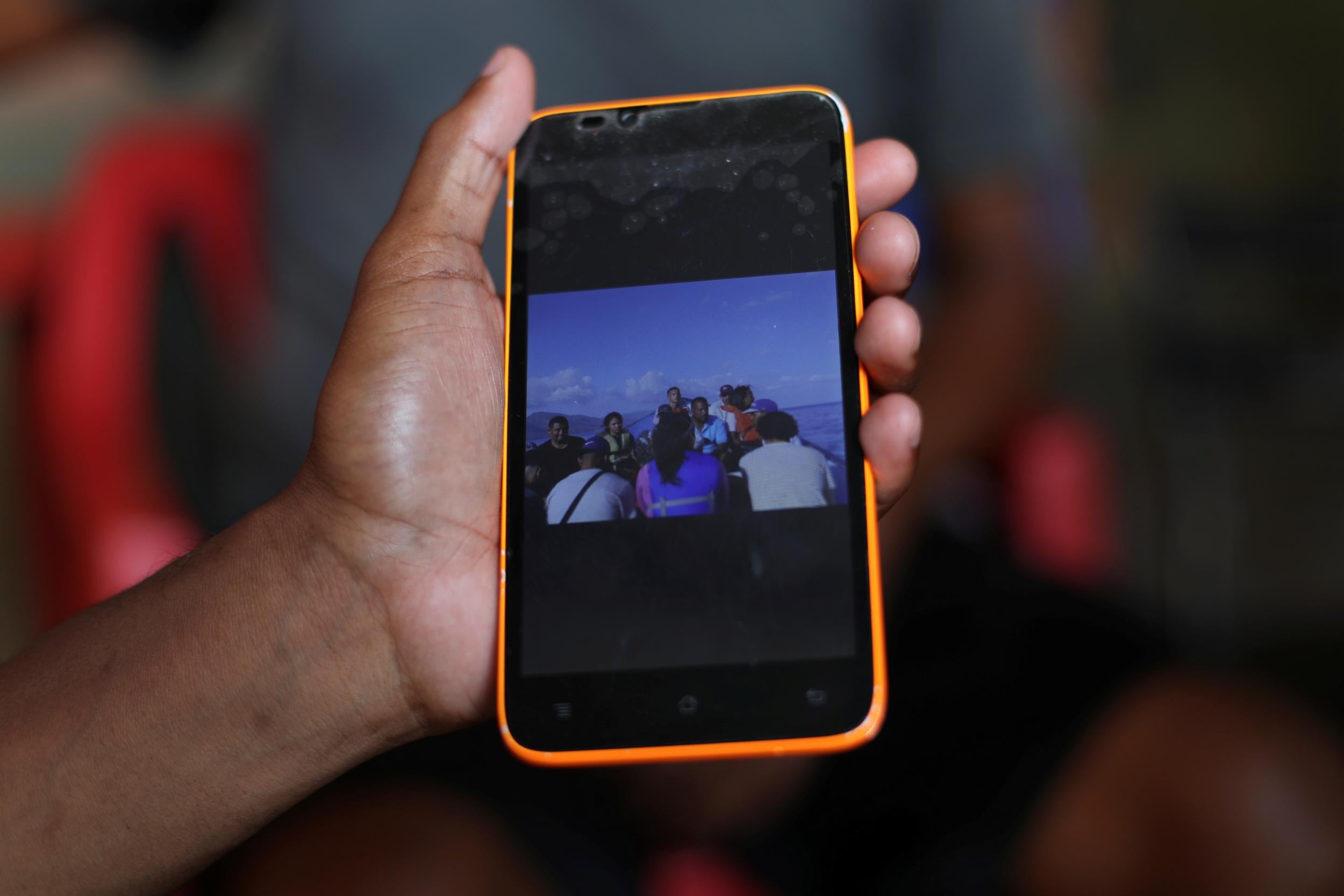
She tried to hold on to a gas canister, but it leaked fuel that burned her face. A smuggler barked orders while some of the women who could not swim crawled on top of the ones who could, in a frenzied attempt to breathe, Merchan says. In the pandemonium, she saw one woman trying to escape the rest.
“I said, ‘Where are you headed?’”. The woman signalled towards a rocky outcrop in the straits.
Lifted by a current, the two women pushed away from the capsized boat, holding hands under the water so as not to lose one another as the voices of their fellow passengers grew distant. After a long time, they heard the sound of surf beating against the rocks of Patos Island. Merchan waded ashore, exhausted. Her mind suddenly flashed to her friend Yocelys Rojas, whom she had left behind at the boat. Before they had set off that night, her friend was itching to share some news about her family back in Venezuela. But the loud motor had drowned out her voice and Rojas was saving the story for the other side.
“She disappeared and I will never know what she was going to tell me,” Merchan says.
A desperate search for land and gas
In Trinidad, a bar owner in the capital, Port of Spain, got word that the women never made it to shore. He had paid £240 to the smugglers to take one of the women to his bar, where she would work as a prostitute, he says. He had also paid a bribe to members of the Trinidadian coast guard so that they would not stop the boat, he says. But no one showed up that night, says the bar owner, who asked that his name be withheld to discuss details of the crime. Venezuelan radio had begun reporting the shipwreck. But as is often the case in Venezuela, where blackouts are rampant, there was no electricity in much of Guiria that day.
Diaz, the teacher whose children were steadily leaving for uncertain futures abroad, was sitting with his grandchildren outside to escape the heat when his phone rang.
“They said that the boat my daughter was on had flipped,” he says.
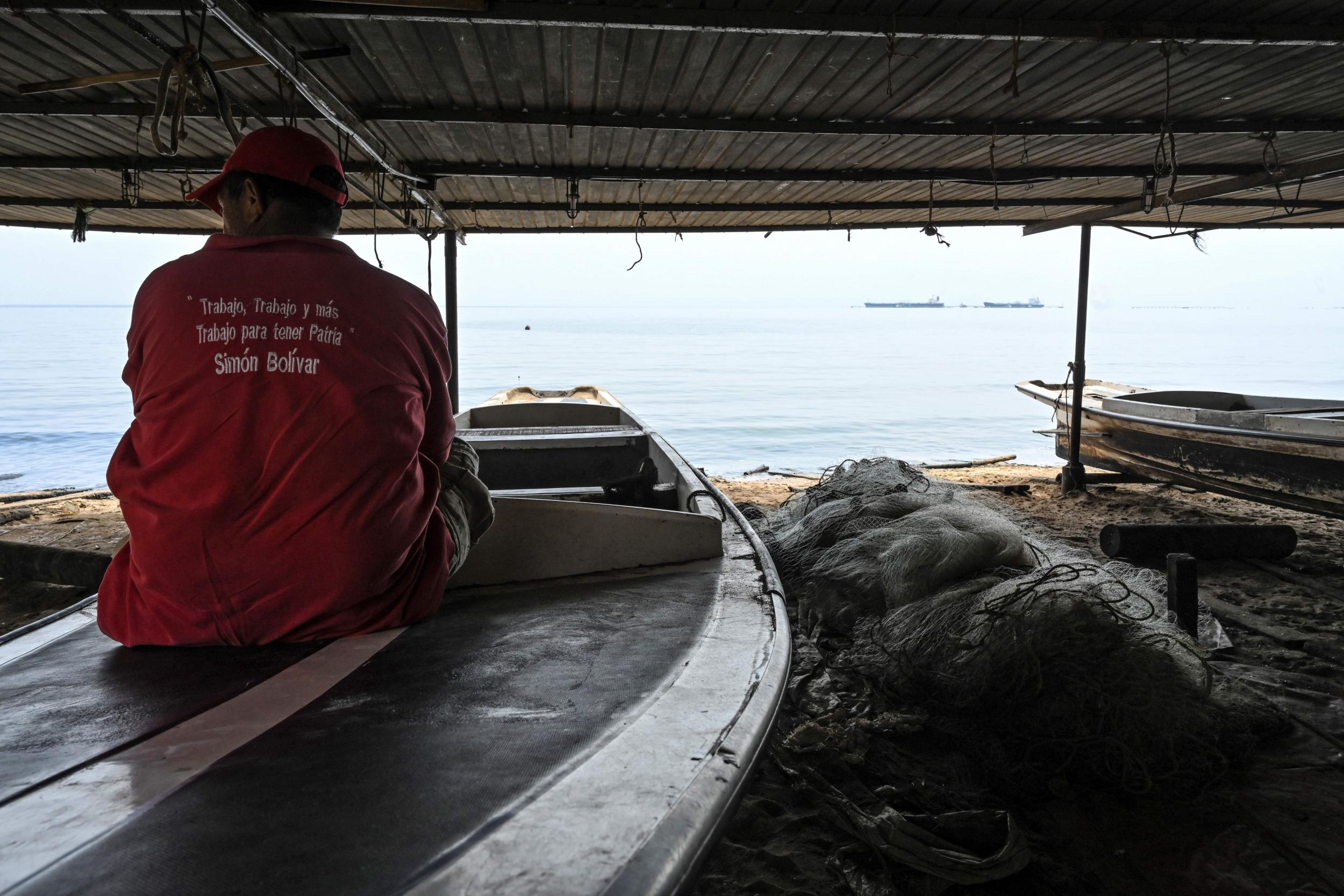
Diaz went to the harbourmaster’s office. Dozens of other relatives of the missing had gathered to check on the search for survivors. But nothing had begun.
“They said there was no gasoline,” Diaz says.
His anger rising, Diaz went to the coast guard office, which told him it had not been authorised to perform a search, he says. Relatives of other victims said they had also been dismissed, encouraged to find fuel to mount their own improvised rescues with local fishermen. One man returning from a rescue attempt told Diaz that they had found only bodies in the water, which they had loaded onto a boat headed back to Venezuela.
“My heart crumpled,” Diaz says.
Out on Patos Island, Merchan was desperately seeking help. After wading ashore, she had seen fishing vessels passing, but none had stopped. She was exhausted and could barely scream. At night she could see lights she believed were those of search vessels.
“We went on our knees, we prayed to God, screaming,” she says.
Merchan and the other woman took a risk, entering the water again to navigate the surf until they found a rocky outcrop that was more visible. It was the right decision. Shortly after, a fishing boat pulled up with her husband and several other relatives looking for the victims.
“I just cried and cried,” she says.
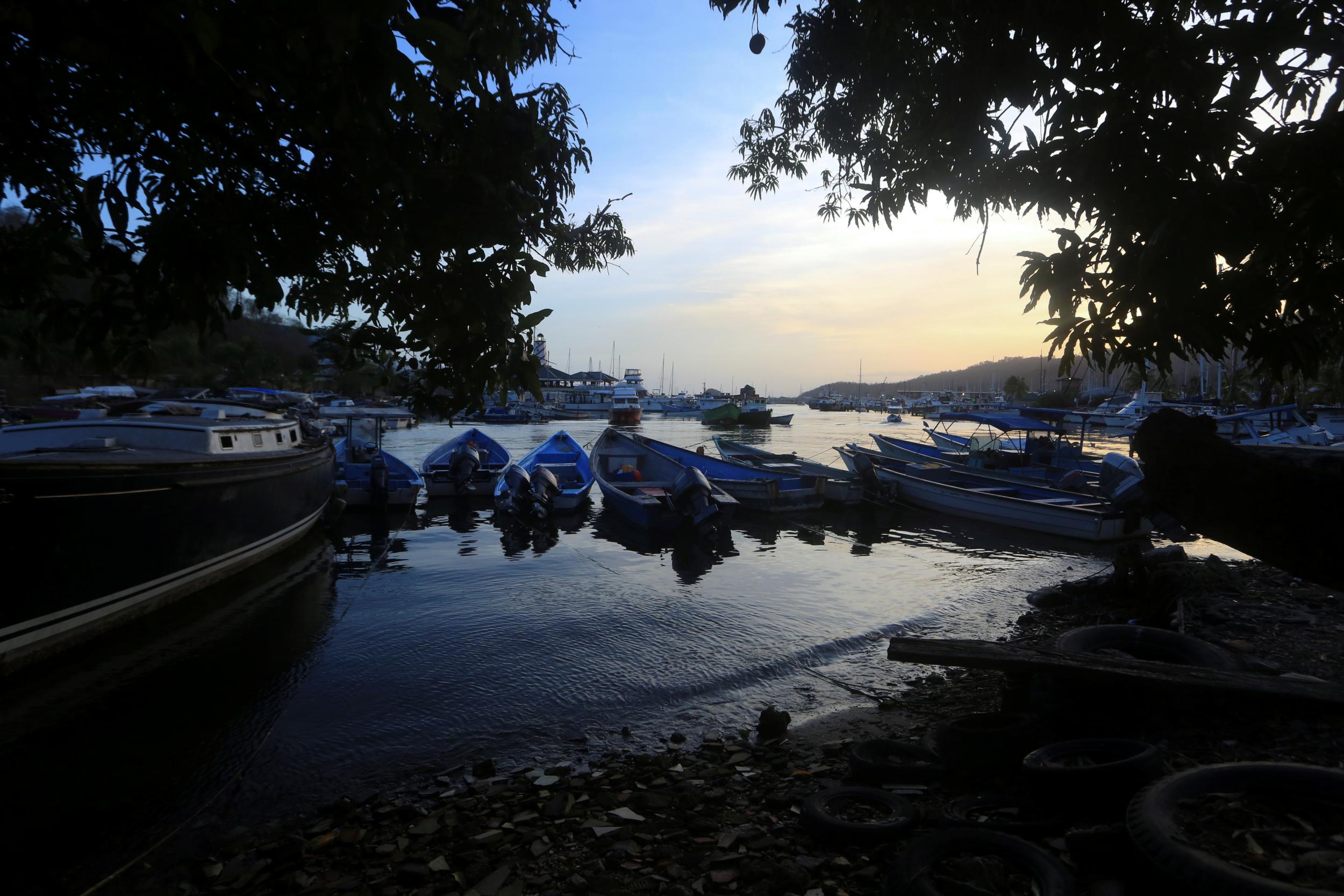
In another part of the straits, Yoskeili says she had begun to hallucinate as she floated in the water, at one point thinking she had reached land. She eventually fell unconscious floating near other passengers, as some were swept further out to sea by currents. Two days later, she says she could feel the thudding of an engine in the water. A rescue boat arrived and dragged her aboard. Back on shore, Diaz was convinced that his daughter had died. But the same day the women were found alive on Patos Island, an ambulance with more survivors whooshed by. A fishing boat had found his daughter, Oriana, in the water, still breathing, near the wreckage.
“A boy said, ‘Professor, your daughter is here,’” Diaz says.
Oriana sat in the hospital bed, with gashes in her arms, her face and lips so burned from her days in the sun that she could hardly speak. She had no pants, having lost them at sea.
“She could have been missing an arm or a leg, but my daughter was alive,” Diaz says. He put a blanket around her as she asked for water.
“Just to think of this once more is to feel this agony and to know how one will never forget these times.”
‘The cure was worse than the sickness’
For Omar Velasquez, whose 15-year-old daughter, Omarlys, was aboard the boat that night, there was no reunion in the hospital, only the hurt that she had not told him why she left – and the grief that she never appeared again. On a recent day, he mulled over the many unanswered questions. How did an overloaded boat smuggling dozens of women manage to leave the port undetected by Venezuela’s coast guard? Why was there no fuel for the government rescue boats and why was no aerial search mounted for days? And above all, he asked: would there ever be justice for what happened?
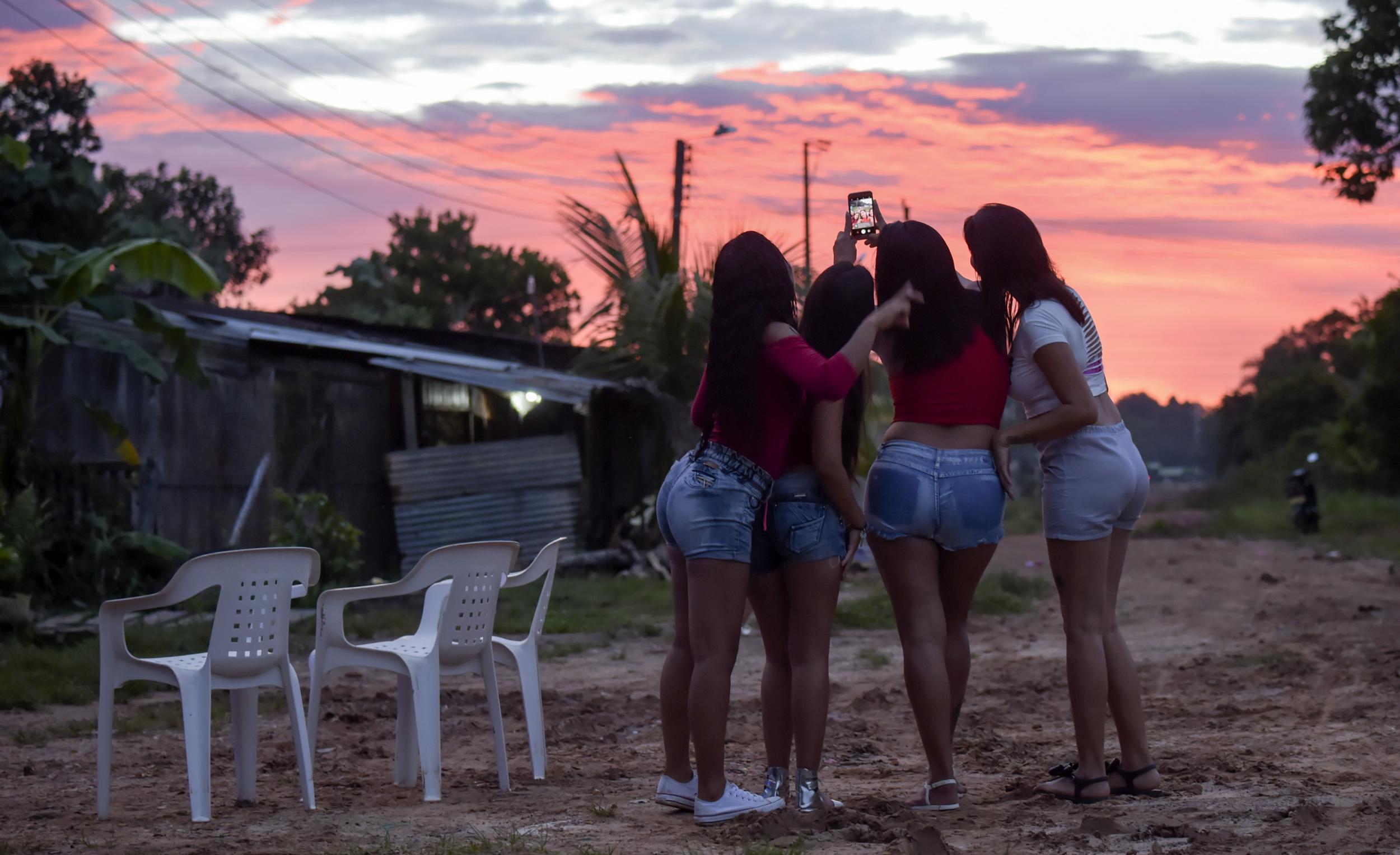
“There was a deep complicity of the government that was behind this,” Velasquez says.
Carlos Valero, a lawmaker in Venezuela’s opposition-controlled National Assembly, points to the arrests of the two national guardsmen as evidence that government employees played a hand in the smuggling ring. But an investigation he opened in June has gone nowhere, he says, blocked by the country’s ruling party. Valero has focused his attention on Trinidad, where he says he has gathered evidence that coast guard and immigration officials were paid about £80 for each woman aboard the boat – payments to allow them to enter. Answers from authorities in Trinidad have also been hard to come by, he says.
“It’s like these people don’t exist,” he says of the victims.
The Trinidad government did not respond to written questions or requests for comment. Three commercial boat owners in Trinidad and a fourth in Venezuela confirmed that they had either made payments to smuggle prostitutes from Venezuela, or had witnessed such payments by other boatmen bringing women to Trinidad. At the Port of Spain bar, police officers approached the owner, in plain view of several Venezuelan women who worked under him, and greeted him in front of a reporter.
“These are my friends, I know them well,” the owner says of the officers, smiling.

Relatives of the suspects in the human-trafficking ring say their family members had been falsely accused by the surviving women. None of those jailed could be reached through the Venezuelan prison system. For all his anger, Diaz now seemed most consumed by the question that had led his daughter to leave: how to get food. Hyperinflation has continued. The food shortages remain. And no one in the family has dared to cross the waters again.
“We had big hopes for her,” he says of his daughter, Oriana. “She would be able to support all of us in Trinidad.”
He takes a deep breath and adds: “But the cure was worse than the sickness.”
© New York Times
Join our commenting forum
Join thought-provoking conversations, follow other Independent readers and see their replies
Comments
Bookmark popover
Removed from bookmarks